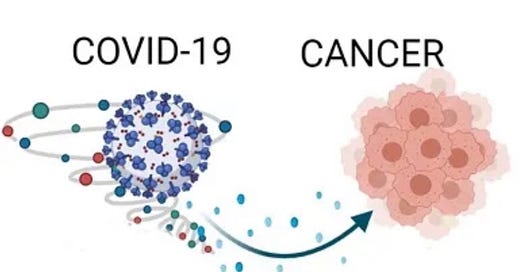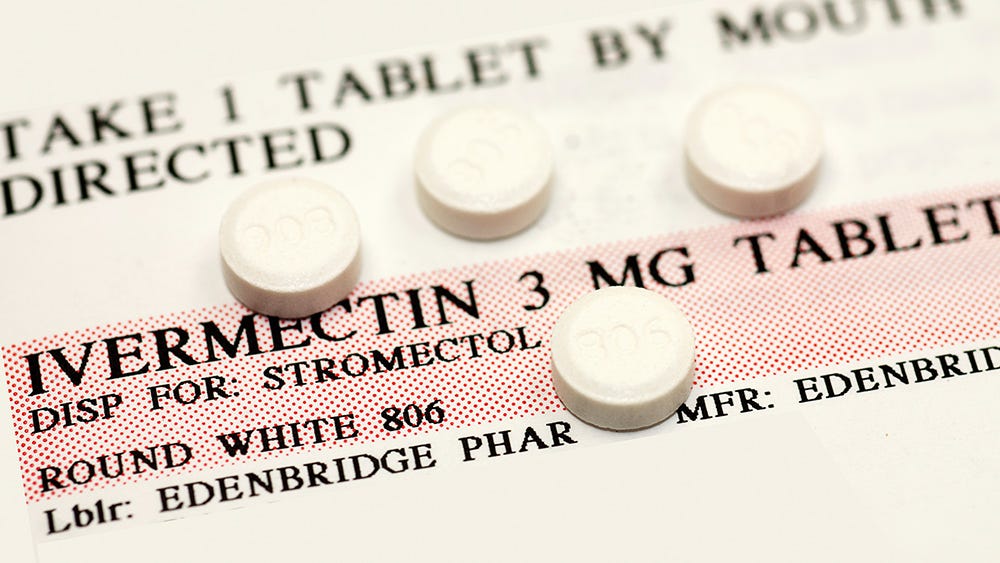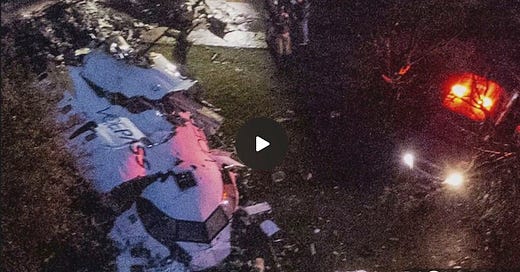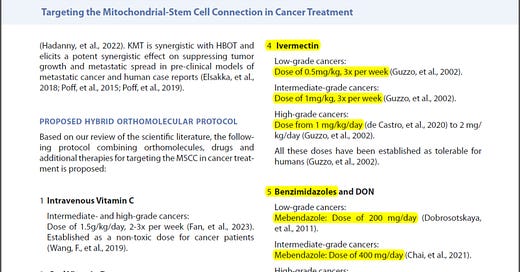
BREAKING NEWS! Doctors Warn COVID-19-Induced T-Cell Exhaustion Linked To Oncovirus Reactivation And Development Of Various Cancers!
It all comes back to the issue of the virus, and, more critically, the slow kill bioweapon "vaccine" negative effects on the immune system, or VAIDS.
Italian Doctors Warn SARS-CoV-2 Induced T-Cell Exhaustion Can Lead To Reactivation Of Oncoviruses Such As HHV5 And HHV8 Leading To Hodgkin Lymphoma, B Cell Lymphoma And Other Cancers.
The COVID-19 pandemic, caused by the novel coronavirus SARS-CoV-2, has had a profound impact on global health since its emergence in Wuhan, China, in late 2019. With the World Health Organization declaring it a pandemic in March 2020, the virus has claimed millions of lives worldwide. While much attention has been focused on the respiratory and acute symptoms of COVID-19, emerging research from Italian scientists and doctors is shedding light on a less discussed but equally significant aspect of the disease - its potential to induce T-cell exhaustion, leading to the reactivation of oncogenic viruses such as human herpes virus 5 (HHV5) and human herpes virus 8 (HHV8).
The Path to Immunosurveillance Breakdown
SARS-CoV-2 primarily spreads through close contact, respiratory droplets, and aerosols. The virus enters human cells by binding to angiotensin-converting enzyme 2 (ACE2) receptors, which are distributed widely throughout the body. One of the striking observations in severe COVID-19 cases is the occurrence of lymphocytopenia, a condition characterized by a significant decrease in lymphocyte count. Lymphocytes, particularly killer T cells and helper T cells, are crucial components of the immune system responsible for mounting a defense against pathogens.
Research has shown that in 67-90% of severe COVID-19 patients, lymphocytopenia occurs, suggesting a compromised cellular immune response. Moreover, studies have reported white pulp and lymphoid tissue depletion, further emphasizing the detrimental effect of the virus on the immune system. It is believed that SARS-CoV-2 can directly damage lymphocytes by either ACE2-dependent or ACE2-independent entry into these immune cells.
T-Cell Exhaustion and Viral Reactivation
With the decline in immunosurveillance caused by COVID-19-induced lymphocytopenia, latent viruses that reside within the body can be reactivated.
Notably, this phenomenon has been observed in herpes viruses, a family of DNA viruses that includes HHV1 (responsible for oral and genital herpes), HHV3 (causing chickenpox and shingles), HHV4 (known as Epstein–Barr virus or EBV), and HHV5 (also known as cytomegalovirus or CMV).
Research literature and COVID-19 News reports are replete with reports of herpetic virus reactivations during the course of COVID-19. Surprisingly, similar reactivations have also been documented following COVID-19 vaccination, which includes nucleoside-modified messenger RNAs (modRNAs) and adenoviral vectors as platforms. Among these reactivations, HHV5 (EBV) and HHV8 (Kaposi’s sarcoma-associated herpes virus) have gained particular attention.
HHV5 is notorious for its association with various cancers, including Burkitt’s lymphoma, Hodgkin lymphoma, diffuse large B cell lymphoma (DLBCL), and nasopharyngeal carcinoma. HHV8 is linked to conditions such as Kaposi’s sarcoma, primary effusion lymphoma, and multicentric Castleman’s disease. In extremely rare cases of severe immunodeficiency, these viruses can act synergistically, exacerbating the severity of disease, as seen in EBV-positive HHV8-associated large B cell lymphoma.
Case Studies and Concerns
Italian researchers and doctors recently encountered a rare case of EBV-positive HHV8-associated large B cell lymphoma with plasmablastic differentiation in a 50-year-old female COVID-19 patient. This patient had undergone pancreas and kidney transplantation due to type 1 diabetes mellitus approximately 20 years prior. Tragically, her condition progressed rapidly and led to a fatal outcome.
In another alarming case, an EBV-positive DLBCL involving multiple organs, including the lungs, was diagnosed in a 78-year-old male patient with SARS-CoV-2 infection. This case underscores the potential for severe outcomes when COVID-19 coincides with herpes virus reactivation.
Additionally, a 70-year-old male patient suffering from both severe COVID-19 and EBV-positive Hodgkin lymphoma was reported. These cases, along with several others documented in the medical literature, raise concerns about the relationship between COVID-19 and the reactivation of oncogenic herpes viruses.
Implications and Future Research
The reactivation of herpes viruses during COVID-19, and even post-vaccination, suggests a complex interplay between the virus and the immune system. It is crucial to investigate whether other DNA oncoviruses, such as human papillomavirus (HPV), may also exploit the weakened immune system during COVID-19, as similar reactivations have been observed in AIDS and graft-versus-host disease.
Preliminary data indicate that COVID-19 can accelerate the progression of HPV-positive cervical intraepithelial neoplasia towards microinvasive carcinoma. This finding underscores the importance of exploring the potential impact of COVID-19 on cervical cancer screening programs.
In conclusion, while the immediate focus of the COVID-19 pandemic has been on its respiratory manifestations, Italian researchers have raised a significant concern regarding the virus’s ability to induce T-cell exhaustion, leading to the reactivation of oncogenic viruses. This phenomenon, exemplified by the reactivation of HHV5 and HHV8, can have dire consequences for individuals with compromised immune systems. Further research is needed to understand the mechanisms underlying these interactions and to develop strategies to mitigate the risk of oncogenic virus reactivation in COVID-19 patients and vaccine recipients. As the pandemic continues to evolve, a comprehensive understanding of these complex interactions is essential for protecting public health.
The study findings were published in the peer reviewed journal: Microorganisms: SARS-CoV-2 Induced Herpes Virus Reactivations and Related Implications in Oncohematology: When Lymphocytopenia Sets in and Immunosurveillance Drops Out
Readers of this Substack are well aware that oncovirus reactivation and various turbo cancers due to both the virus and the far more pernicious DEATHVAX™ may possibly be prevented, and even cured; to wit:
Synergistic pairing of ivermectin and fenbendazole found HIGHLY EFFECTIVE at preventing and treating cancer
This Substack has recently written about the wonder drugs Ivermectin and Fenbendazole: As a combination therapy these two drugs offer a highly synergistic approach to curing a wide range of ailments from slow kill bioweapon injection damage to prior-based diseases to (turbo) cancers, etc.
Do NOT comply.



















EMF: The Invisible Rainbow Sold as a VIRUS - Dr. Tom Cowan explains how illness from EMF exposure is conveniently blamed on a fictitious virus as a Vaccine industry business model. - http://tinyurl.com/mv9jz4pm
Didn't have to read much of this article to think back to my brothers diagnosis of Mantle Cell Lymphoma after his 3rd shot. As far as he knew he never contracted covid19 except last fall, which was after his chemo and stem cell transplant and 3 or 4 more doses of Pfizer. He fought this covid19 bug for months after a few doses of antibiotics. I don't think he is 100% over it to this day.
To me this is a big cover up for vaccine injuries and huge increase in cancers.
FYI his wife also 3x vaxxed was diagnosed with colon cancer approximately same week as my brother.